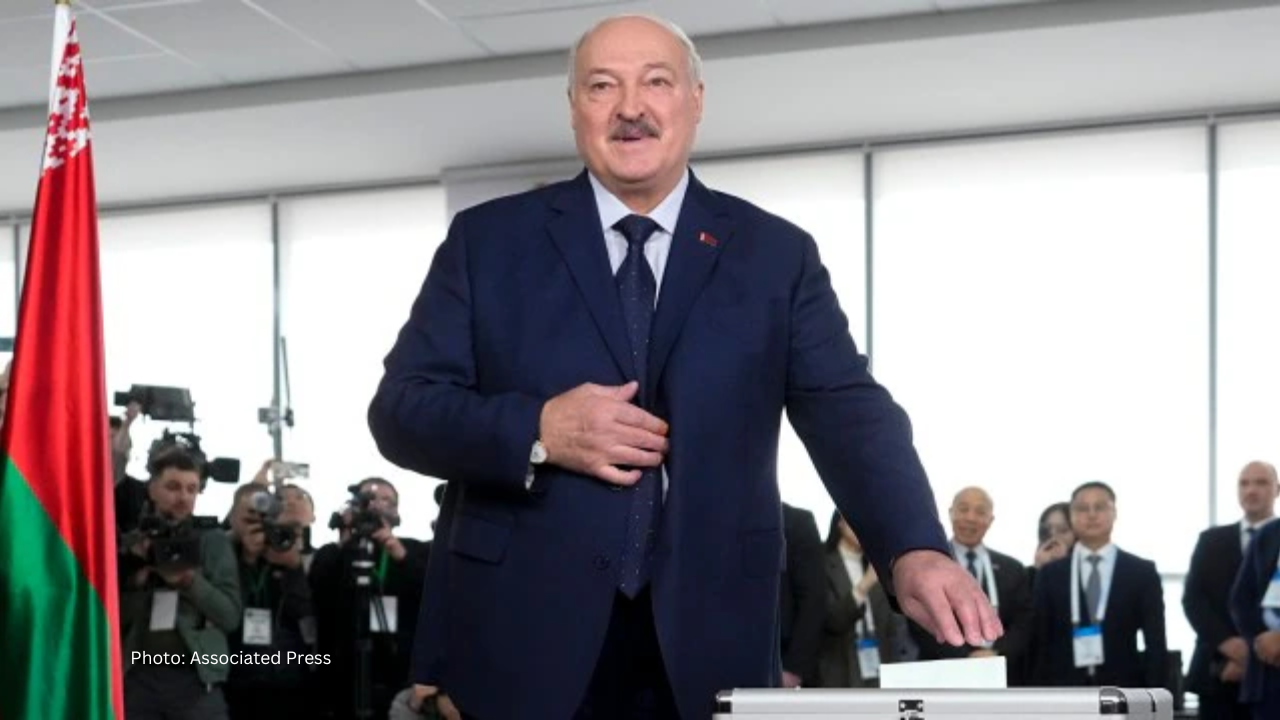Belarus Votes, But Lukashenko Decides
Shurat Rana Rushmi | 27 January 2025
The 2025 Belarusian presidential election played out as expected—another landslide victory for Alexander Lukashenko, another wave of international condemnation, and another step deeper into authoritarian rule. With no real opposition, an iron grip on power, and unwavering support from Russia, Lukashenko's seventh term cements his status as Europe’s longest-serving leader. But behind the façade of an electoral win lies a nation grappling with repression, forced exiles, and a shrinking space for dissent.
According to official results from the country’s Central Election Commission,Lukashenko won with 86.8% of the vote, a figure widely dismissed by critics as manipulated. The election, held on January 26, has been characterized as a "sham" by European and U.S. officials, given the suppression of independent media, imprisonment or exile of opposition figures, and a political landscape dominated by state control.Despite the presence of four other candidates, none posed a serious challenge to Lukashenko. His opponents were largely seen as handpicked to lend an appearance of democratic legitimacy to the process. Sergei Syrankov, leader of the Communist Party, openly supported Lukashenko, stating his campaign was "not instead of, but together with" the incumbent. The lack of credible opposition, combined with the government's tight control over the electoral process, rendered the election results predictable.
Since the 2020 protests that shook the regime, Belarus has been under intense political repression.More than 1,200 political prisoners, including Nobel Peace Prize laureate Ales Bialiatski, remain behind bars. Opposition leader Sviatlana Tsikhanouskaya, who ran against Lukashenko in 2020 and now lives in exile, dismissed the latest election as "a farce."Adding to the suppression, the government removed overseas polling stations, preventing the thousands of Belarusians who fled to Poland and Lithuania from casting their votes. In a lengthy post-election speech, Lukashenko brushed aside accusations of repression, claiming that opposition figures had "chosen exile or prison"—a stark admission of the state’s intolerance for dissent.His remarks echoed his longstanding narrative that his leadership ensures stability and prevents Belarus from descending into chaos, drawing unfavorable comparisons to Ukraine’s ongoing conflict.
Western leaders, including EU foreign policy chief Kaja Kallas and German Foreign Minister Annalena Baerbock, condemned the election as neither free nor fair. Since Lukashenko’s disputed 2020 election, the U.S. and EU have refused to recognize him as Belarus’ legitimate leader, which sparked nationwide protests and led to a brutal crackdown on dissent.However, Lukashenko received strong backing from his key ally, Russian President Vladimir Putin, who congratulated himon his "high political authority."The two leaders have forged ever-closer ties, with Belarus increasingly reliant on Moscow both politically and economically, especially after facilitating Russia’s military actions in Ukraine.China’s President Xi Jinping also extended his congratulations, reaffirming Beijing’s backing for the Belarusian leader.Inside Belarus, many citizens view the situation with a mix of resignation and quiet frustration. Decades of crackdowns and propaganda have left much of the population hesitant to resist openly, while the government’s narrative of "peace and order" convinces some that stability is preferable to uncertainty. Yet, opposition voices remain strong, particularly among those in exile, who continue to call for democratic reforms and an end to authoritarian governance.
As Lukashenko embarks on another five-year term, his grip on power appears firmer than ever, but challenges persist. Belarus’ economic dependence on Russia has deepened, andthe capital, Minsk plays a complex role in regional geopolitics, including potential involvement in negotiations related to the Russia-Ukraine war. The question of succession remains unanswered, with no clear transition plan in sight. Despite the state's tight grip on society, opposition forces remain active abroad, working to keep the dream of a democratic Belarus alive. Lukashenko’s dominance remains uncertain, but for now, Belarus continues down a path of authoritarian rule, largely isolated from the West and increasingly dependent on Russia for its survival.
Shurat Rana Rushmi is a Research Associate, Centre for Governance Studies
Views in this article are author’s own and do not necessarily reflect CGS policy.
